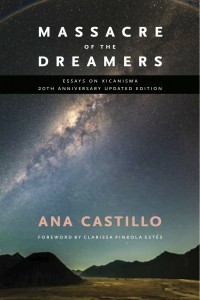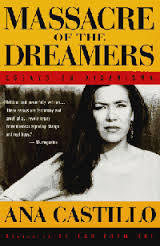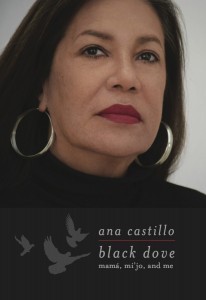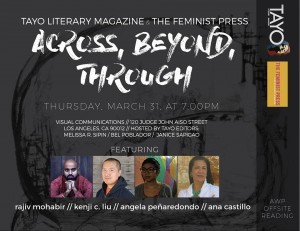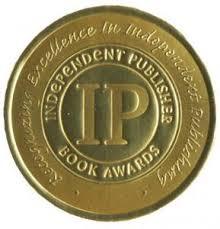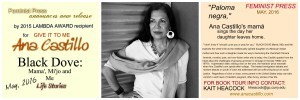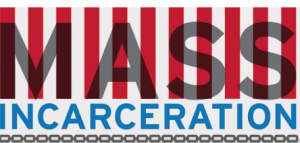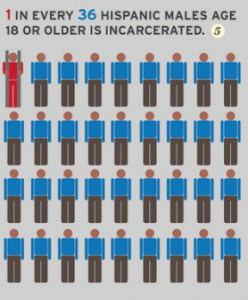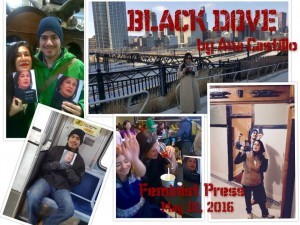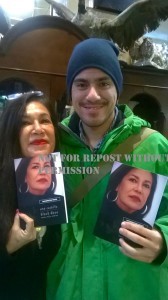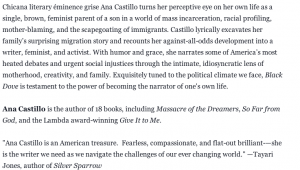Ana Castillo's Blog, page 14
February 17, 2016
about MASSACRE OF THE DREAMERS new edition
Massacre of the Dreamers points out the omissions and challenges the misconceptions of a society that recognizes race relations as primarily a black-and-white issue. Castillo’s essays analyze the 500-year-old history of Mexican and Amerindian women in this country and document the ongoing political and emotional struggles of their descendants. –from Amazon
This new edition of an immensely influential book gives voice to Mexic Amerindian women silenced for hundreds of years by the dual censorship of being female and indigenous. Castillo replaced the term “Chicana feminism” with “Xicanisma” to include mestiza women on both sides of the border. In history, myth, interviews, and ethnography Castillo revisits her reflections on Chicana activism, spiritual practices, sexual attitudes, artistic ideology, labor struggles, and education-related battles. Her book remains a compelling document, enhanced here with a new afterword that reexamines the significance of Our Lady of Guadalupe. –from UNMP
ACCLAIM for first edition:
“Brilliant and powerfully written. . . . These essays are testimony and proof of a . . . revolutionary consciousness signaling change and real hope.” — Ms. Magazine
“What I admire about this book is its insistent demand for justice.” — Matthew Rothschild, The Progressive
“Massacre of the Dreamers will be a stimulating addition to ethnic and women’s studies collections.” — Booklist
“Castillo goes after our hearts and minds, not territory or power.” — Village Voice
FORTHCOMING Memoir Essays: May 10, 2016
February 16, 2016
Early Warning: Advanced book signing L.A. March 31
February 11, 2016
WATERCOLOR WOMEN, OPAQUE MEN: New Edition. Northwestern University Press; Fall, 2016
Independent Publishers Book Award Winner: Best top ten books of 2006
“Storyteller of the Year”
(Excerpts from Intro to new forthcoming edition by Carmen Tafolla, current Poet Laureate of Texas)
In Watercolor Women Opaque Men Ana Castillo has painted a masterpiece of Latina identity and self-empowerment, and has given expression to mythic images of colossal strength alongside the dredging of pus, mud, and sexism. It explores the sweaty underbelly of the Chicano experience in the U.S., ranging from the injustices of workers without “papers” and without rights to the invisibility of Latino contributions to this nation…
Reflecting a strong sense of historical process, Castillo transports to the reader elements of the long-neglected and suppressed history of the Indo-Hispanic peoples whose presence preceded that of the United States in the Southwest, West, and far Southeast of this nation. She also portrays, simultaneously, the incredible strength of a Latina at the bottom of society’s prestige ladder, who defiantly pursues her liberation and her actualization, crossing lines, mores, and expectations, to transform and grow and claim her own power.
In esthetically crafted epic poems, Castillo follows this personal transformation…
Another characteristic of the literary trajectory of this powerful novel in verse is that while it is constantly remembering and integrating its history and the multiple instances and possible outcomes of each situation, it moves steadily and powerfully forward like an inevitable force of nature…
This book is the essence of mestizaje, a blended world of opposing root cultures, where the reader finds both Allah and Für Elise, both Fun with Phonics and a temazkal sweat lodge, both Our Lady of Guadalupe and Elvis, as in the lives of millions of mestizo bicultural Latinos, taking from the mythologies and experiences of different cultures to craft their own survival instructions. Here, the reader finds the dreams of two cultures and two genders expressed through Amazons and heifers, and identifies with both…
Exquisite and beautifully crafted, Watercolor Women Opaque Men is filled with messages and metaphors that are liquid and translucent, in sharp contrast to the opacity of the men described in the title. Its feminist and humanistic stance grows steadily stronger, despite the onslaught of blows, and simply reaches a clarity that comes from the big picture, the larger canvas of perspective gained from years and experience at all levels of the economic structure…
And in characteristic Castillo fashion, no lines are absolute, no categories exclusive…
There is an epic grandeur here…
Perhaps the most delightful of these earthshaking woman figures appears in La Amazona (or, the Eighties in San Francisco) where Castillo’s mastery of character and profound eloquence of human spirit lay bare the strength of women. Here, both genders dare to defy traditional roles, with endearing affection and connection across the lines set for them by society. “He adored/ The masculine/ in a woman/ the feminine/ In men. / We are all/ one of each.”
The feminist themes in the novel are consistent throughout, but it is significant that when the resolution of this story finally begins to unfold in the concluding poems of the book, when life begins to come together with all the features visible as in a puzzle about to be completed, it happens within the context of a feminist society…
The portraiture of the oppressions is gracefully painted on a much bigger canvas – the tale of the other self…
Castillo’s word choice is compact but eloquent, with just enough metaphor to transport the reader into the realm of the novel:
You can forget everything
about your life
when you ride the train.
It goes underground,
then comes up into the light.
You watch what used to be
This liquidity of language is continued in In A Night Without Stars on the Isthmus…:
A wash
of dusk rose and aquamarine
on coarse amate paper –
Casually, at first, he noticed
her, a stone
along his labyrinthine walk. –
The metaphor is neither overdone and forced nor underutilized and dull, but minimalist and natural, effortlessly evolving to build the intricacies and depth of each character…
The style Castillo uses is polished by her years of masterful word-crafting; not an extra adjective or useless adverb clutters these pages. In her concise and vivid word choice, nouns and verbs do the heavy lifting, and the power of the actions and relationships is enough to seize our attention without ornate descriptions or decorations. “Lose the dead weight / if you’re going to fight. / It’s in the manual.”
The rhythm of Watercolor Women’s phrases is melodic and deft, without hesitation, but dancing gracefully from one concept to the next in the least steps possible as a dancer would move.
Put a name to her
so by the curve of her calf,
slope of her hip,
Hollow of her waist,
length of her neck
down to the collarbone
As she turns to you
in her sleep –
you know you exist
Apart from her.
The men are painted within their opacity, but still, their motivations, failings, and dreams are plumbed with authenticity and the voices of their own realities. Yet they are opaque, a word that speaks of non-transparency, clouds, blurriness, or being “impenetrable to light; not allowing light to pass through.”
While sentence length and style, thematic issues, directness of humor, and mythological references vary to the most adventurous ends of the gamut, there is no variation in literary quality, a standard hard to achieve in a novel in verse. Even in moments of culminating action or tragedy, the images are sharp, the words sparse, and the metaphor a fluid fit, as in the following lines from the resolving poem A Night Without Stars on the Isthmus from the denouement of the book.
No one noticed
when she fell
Just as the world has never
Noticed
When she stood.
She fell by the crude wooden table,
like a morsel of tamal,
sniffed at by stray dogs, stepped on by dancing feet.
The deepest resolution in this novel of introspection and interaction is still this blending of realities, human faces and voices into one diamond displaying its facets as if they were dreams…
Dr. Carmen Tafolla
State Poet Laureate of Texas
February 10, 2016
BLACK DOVE: Mamá, Mi’jo, and Me (Life Stories) Forthcoming New Collection of Personal Essays
(Excerpts from “Love, Your Son, MarCello)
FROM: MarCello Castillo
SENT: December 23, 2011
I’m good. Just taking it one day at a time. We are slowly being let out of lockdown. We get one hot meal and we get to be in the dayroom until 3:30-4 p.m. On a lighter note, I showed some Chicano “friends” your books. One of them, whose dad was a bodyguard for Corky Gonzaldez, wants to send you some money to send some of your books, signed, to his mom in Denver…
FROM: MarCello Castillo
DATE: March 13, 2011
I have a question for you. What alternatives do we have to patriarchy? A Matriarchy? Anarchy? I have always been intrigued with the idea of a new religion or a new societal structure…
FROM: Ana Castill
DATE: March 14, 2011
We cannot think of any monumental change in the world without thinking about patriarchy, which is capitalism’s fundamental basis. I am a poet, not a politician. In my poet’s vision, which at the onset I’ll admit is mostly wishful thinking, if we began considering what was good for the world’s organic population and what was beneficial to the world’s restoration and well-being, we would be on the way to an alternative to patriarchy…
Advanced books & signing:
April 1, AWP Los Angeles, AWP noon.
April 30th Chicago Women & Children First Bookstore.
BLACK DOVE: Mamá, Mi’jo, and Me (Life Stories) by Ana Castillo May 10, 2016, Feminist Press; NY
INTRO (excerpt, on U.S. history of immigration, my own grandparents’ migration north and repatriation in 1929)
“To think that less than a hundred years ago, up to a million people were corralled, harassed, and handed orders as private citizens to leave this country. They were told to leave hard-earned good lives behind, lives that might’ve included work, property, family, community, church, and future plans. This seems a monumentally sad, unimaginative way to fix a fallen economy.
¿Qué? No lo entiendo, I say to you.”
‘On Mothers, Lovers, and, Other Rivals,’ new memoir essay in BLACK DOVE (MAY 10, 2016, Feminist Press; NY)
‘This is not the story about a love affair. It is a story about the love affair. It doesn’t tell how it started or all the good stuff along the way. It is only about its inevitable end. There was a lot of good stuff, to be sure. For example, I recall the hard earned week at a resort in Manzanillo where we spent most of the time in our room or by the pool and back to our room…’
‘Are Hunters Born or Made?’ memoir essay in BLACK DOVE
Excerpt: “’In other words…’ I started slowly, needing to paraphrase what he’d just confirmed to give myself a little time to absorb it. “if a girl goes after you, you are automatically not interested in her on principle.”
“Oh without a doubt. I’m a hunter.” No question, he was smug.
“Okay, Bambi,” I said, “ As you go off to join the thundering herd, what do you expect from the girl now? You blew her off. You were rude.”
People say my son…”
Early Orders on Amazon:
February 3, 2016
New book! El día de las madres mexicanas release: 10 de mayo 2016
January 26, 2016
Sonoma State University: Mon 3/28/16
Sonoma State University: Mon 3/28/16
Day with Ana Castillo
Queer Studies Lecture Series about Give It To Me,
Evening conversation/reading about Black Dove.: Mamá, Mi’jo, and Me (Life Stores)
January 25, 2016
Early Press Release for BLACK DOVE: Mamá, Mi’jo, and Me
Feminist Press, May 16, 2016
BLACK DOVE: Mamá, Mi’jo, and Me (Life Stories)
Chicana literary éminence grise Ana Castillo turns her perceptive eye on her own life as a single, brown, feminist parent of a son in a world of mass incarceration, racial profiling, mother-blaming, and the scapegoating of immigrants. Castillo lyrically excavates her family’s surprising migration story and recounts her against-all-odds development into a writer, feminist, and activist. With humor and grace, she narrates some of America’s most heated debates and urgent social injustices through the intimate, idiosyncratic lens of motherhood, creativity, and family. Exquisitely tuned to the political climate we face, Black Dove is testament to the power of becoming the narrator of one’s own life.
Ana Castillo is the author of 18 books, including Massacre of the Dreamers, So Far from God, and the Lambda award-winning Give It to Me.
“Ana Castillo is an American treasure. Fearless, compassionate, and flat-out brilliant-—she is the writer we need as we navigate the challenges of our ever changing world.” —Tayari Jones, author of Silver Sparrow
“Reading Black Dove feels like sitting down to an intimate chat with Castillo about growing up with one foot in your world and the other in your parents’. You will get lost as Castillo winds her way through her amazing life.”—Veronica Arreola, director, Center for Research on Women and Gender at the University of Illinois at Chicago
Contact Feminist Press for interviews and appearance information: kheacock@gc.cuny.edu
January 22, 2016
BLACK DOVE: Mamá, Mi’jo, and Me (Life Stories) May 10, 2016, Feminist Press.
Advanced Praise:
“Ana Castillo is an American treasure. Fearless, compassionate, and flat-out brilliant-—she is the writer we need as we navigate the challenges of our ever changing world.” —Tayari Jones, author of Silver Sparrow
BLACK DOVE: Mamá, Mi’jo, and Me (Life Stories) May 16, 2016, Feminist Press.
Advanced Praise:
“Ana Castillo is an American treasure. Fearless, compassionate, and flat-out brilliant-—she is the writer we need as we navigate the challenges of our ever changing world.” —Tayari Jones, author of Silver Sparrow
Ana Castillo's Blog
- Ana Castillo's profile
- 337 followers


